Search
To search for an exact match, type the word or phrase you want in quotation marks.
A*DESK has been offering since 2002 contents about criticism and contemporary art. A*DESK has become consolidated thanks to all those who have believed in the project, all those who have followed us, debating, participating and collaborating. Many people have collaborated with A*DESK, and continue to do so. Their efforts, knowledge and belief in the project are what make it grow internationally. At A*DESK we have also generated work for over one hundred professionals in culture, from small collaborations with reviews and classes, to more prolonged and intense collaborations.
At A*DESK we believe in the need for free and universal access to culture and knowledge. We want to carry on being independent, remaining open to more ideas and opinions. If you believe in A*DESK, we need your backing to be able to continue. You can now participate in the project by supporting it. You can choose how much you want to contribute to the project.
You can decide how much you want to bring to the project.
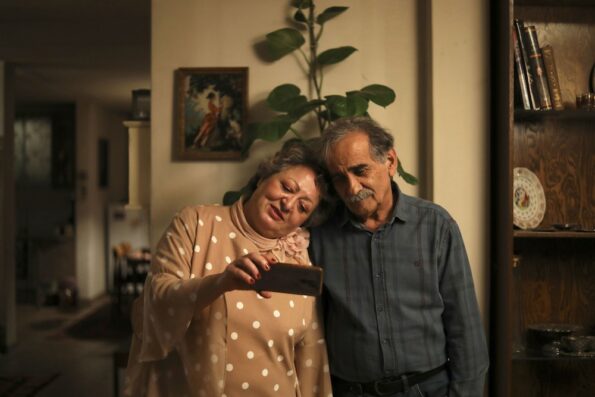
The best perspectives within Berlinale 74 were of talismans and altars, of the hope in reincarnation and of Eden-like friendship. The most common gesture was of hands touching the world of the dead, newborns, enemies and orphans. The films in the festival were a provocation to make us feel how the existence of the entire world is changing, breaking apart and resurrecting within our hands.
After ten days of watching films, I feel that there are three fundamental ideas that resonated in some of the works presented at the festival and that, inevitably, will become a compass for this year’s cinema and the stories to come.
1. Undo Destiny
It is always exciting to find films that break the particular system of destiny, films that show us that life is not just a sequence of cause and effect. Four films stood out at the Berlinale through the impulse of characters willing to break from the lives and future they are supposed to live.
Vogter, by Danish director Gustav Möller, is a film from which it is impossible to emerge unscathed. Eva is a security guard at a prison where the murderer of her son is transferred. She begins a descent into hell, that is, revenge. The film moves within the great dilemma that humanity has not yet known how to answer: How to punish people? It reveals to us how our ideas about prison are as insufficient as they are ridiculous. The films jabs its finger into the theme of the damned. This is a film that makes us think about how we delight in that strange thing called punishment and the appearance of justice at the same time our chest is being ripped open and our wounds shredded.
My Favorite Cake[1]International Federation of Film Critics (FIPRESCI) Prize: My Favorite Cake, by Maryam Moghaddam and Behtash Sanaeeha (Iran, France, Sweden, Germany) by the Iranian duo Maryam Moghaddam and Behtash Sanaeeha, is a film about the beautiful idea of waking up one day and deciding to change your life. Mahin, a 70-year-old woman, leaves her house one morning, notices a man her age, waits for him and invites him to her house to live the best hours of their life. The idea that love happens by chance and that it only belongs to youth is quickly demolished. The film, like life, contains a stark warning: to enter into love, into absolute happiness, is also to enter into the most heartbreaking sadness. This is a film about altars, hope, farewells, an entire life in one day with all you need to make you smile and cry.
Hong Sang-soo presented A Traveler’s Needs[2]Silver Bear Grand Jury Prize: A Traveler’s Needs, by Hong Sang-soo (South Korea), a film that maintains a simple and beautiful thesis: there is no language, only poetry. Isabelle Huppert is a stranger wandering around Korea. She has an enviable character, willing to listen to what the world wants to tell her. Her character is not interested in destiny, only in chance. She is one step ahead of life because she is willing to improvise everything. Without being a teacher she teaches French with a difficult method, that is, thinking, carefully, about her feelings. A lesson for life full of misunderstandings, alcohol, encounters with people, all that and nothing more. In A Traveler’s Needs, one ends up accepting what Hong Sang-soo has always expressed with his cinema: the world needs us.
In La piel en primavera (Skin in Spring) by the Colombian Yennifer Uribe, Sandra begins a romance with the bus driver who takes her every morning to her new job as a guard at a shopping center. One sees this film and understands and envies the complicity between women in Medellín: their purity, intensity, tenderness. This is a film in which men’s gestures are made invisible, no attention is paid to them, no one cares about them. The film revolts against all the cliches of women in Colombian cinema and reveals friendship as a refuge. It offers a destiny forged between friends. Sandra realizes the abyss that romance represents: becoming a mother, a caregiver, to others. She retires prudently (by just changing buses), she continues working, satisfying her desires, going out dancing and enjoying her terrace. Life is for the taking.
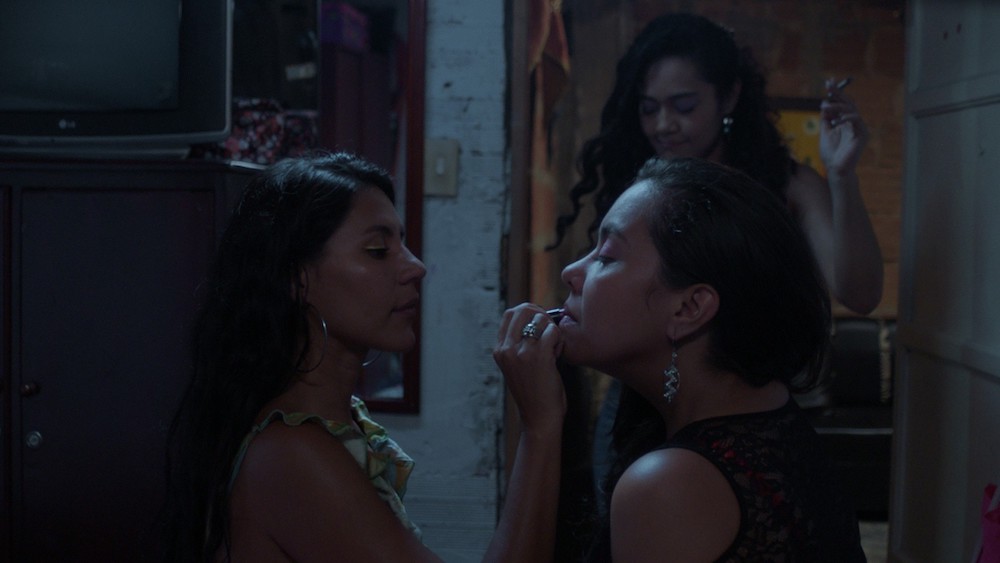
Film still “La piel en primavera” by Yennifer Uribe Alzate (Colombia, Chile)
2. The Headless Woman
To make up for the fact that cinema, until very recently, only praised male characters, the Berlinale highlighted stories with female protagonists. However, it seems that in regards to the protagonists, these days, there is a delight in filming them as martyrs and within the terrifying concept that the world is not theirs.
Some Rain Must Fall, by director Qiu Yang, follows Cai, a woman whose life overflows with incidents and unhappiness. The film forgives nothing. It begins with her getting shot, the softest of the blows she will receive. There are no smiles or hope. The story veers between bad news and bad luck, with few decisions. The only concept, here, is to not forgive her.
The Devil’s Bath[3]Silver Bear for artistic contribution: Martin Geschlacht, director of photography for Des Teufels Bad (The Devil´s Bath) (Austria, Germany), by Veronika Franz and Severin Fiala, recreates the condition of women in 18th-century Austria. Agnes is a young woman who has been married to a man who avoids sexual contact. Agnes begins to go mad in her marriage due to a crisis of faith and the social demands of being a woman. The film feels like a precipice, the emptiness and fear of what we already know awaits her. Agnes slowly falls ill. The screen fills with flesh, wounds, infections. The film only gets worse and hurtles towards disaster, spiritual mockery and misfortune.
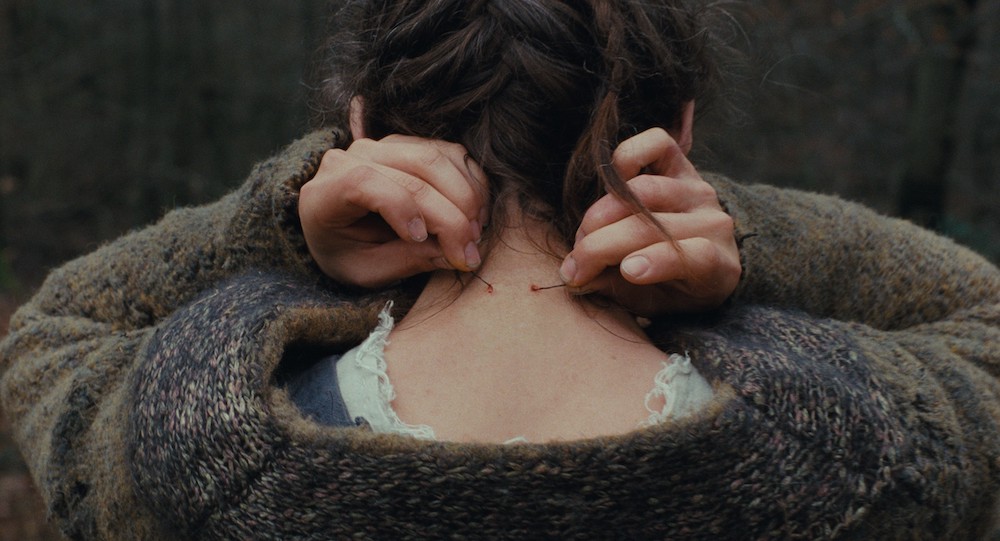
Filmstill “The devil’s bath” by Veronika Franz y Severin Fiala (Austria, Germany)
Along the same lines is From Hilde, with Love, by Andreas Dresen. Hilde, a pregnant revolutionary, is captured for supporting the revolutionary forces in Berlin during the Second World War. The film plays with the editing by contrasting the character’s memories of happiness and her misery in prison. These two films end up being little more than the story of the beheading of the protagonists.
The three films all punish smiles and focus on the physical confinement of women. Tears, prison and silence, nothing else. Little has changed.
3. An Anticolonial Movement
Three films in the official competition reversed the European vision of “cinema from over there.” In La Cocina (The Kitchen), Alonso Ruizpalacios destroys everything in an adrenaline-filled movie. The director films and chops things up. He locks us in the kitchen of a restaurant in New York that serves everything from hamburgers to lobsters. Inside the kitchen everyone handles the food, everything is hustle, screams and sweat. One action that frames the entire film is repeated every few minutes: most of the food gets thrown into the trash, a disturbing gesture given that everyone who works there has known hunger in their own countries. The anticolonial concept, the Ruizpalacios mutiny, is to prevent the viewer who does not know that world from fully entering it. He who does not understand Latin American Spanish is left in limbo, isolated, an immigrant in the movie theater.
In Dahomey[4]Winner of the highest award at the Golden Bear festival, Dahomey by Mati Diop (Benin, France, Senegal), the French-Senegalese director Mati Diop gives voice to a museum statue that questions the French ethics of returning only 26 of the 7,000 pieces that were taken from the Kingdom of Dahomey (today the Republic of Benin) in 1892. In just 67 minutes, Diop exposes the ridiculousness of the French gesture towards Benin culture. The director uses fragments of a university debate in which students and teachers reflect on the return of the pieces and their reading of contemporary colonialism. Diop films the eloquence and intensity of the debate. The most revolutionary gesture is to ignore, to not give even one moment of time to the French, and to hold firm to the premise stated at the very beginning: “The French have already done enough.”
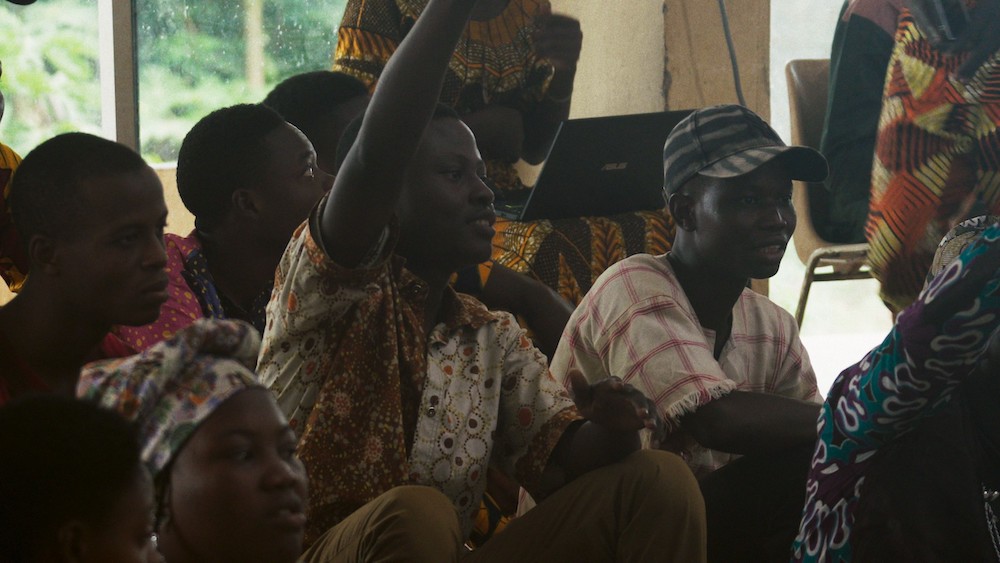
Filmstill de “Dahomey” by Mati Diop (Benín, France, Senegal)
Pepe[5]Silver Bear for best direction: Nelson Carlo de los Santos for Pepe (Dominican Republic, Namibia, Germany, France), by the Dominican Nelson Carlos De Los Santos, delivers anarchy with its changes of formats, languages, and geographical dislocation. From the point of view of an animal, the film shatters the certainties of how Latin American cinema should narrate the legacies of violence of characters like Pablo Escobar. Voices, here, are an element of aesthetic independence: we hear guerrillas, the military, newscasters, cartoons. A territory where everything can be heard, the film becomes a terrifying, imposing, forceful beast. Pepe stirs and compacts the story, which imposes its own rules, uninterested less in facts than in their echoes. One feels, within it, a restless and challenging gaze that highlights the circularity of colonization in Latin America and Africa. The reward is that the film becomes its own character, untamable, terrifying, a bomb placed under the viewer’s seat.
[Featured picture: My Favourite Cake, by Maryam Moghaddam & Behtash Sanaeeha (Iran, France, Sweden, Germany)]
| ↑1 | International Federation of Film Critics (FIPRESCI) Prize: My Favorite Cake, by Maryam Moghaddam and Behtash Sanaeeha (Iran, France, Sweden, Germany) |
|---|---|
| ↑2 | Silver Bear Grand Jury Prize: A Traveler’s Needs, by Hong Sang-soo (South Korea) |
| ↑3 | Silver Bear for artistic contribution: Martin Geschlacht, director of photography for Des Teufels Bad (The Devil´s Bath) (Austria, Germany) |
| ↑4 | Winner of the highest award at the Golden Bear festival, Dahomey by Mati Diop (Benin, France, Senegal) |
| ↑5 | Silver Bear for best direction: Nelson Carlo de los Santos for Pepe (Dominican Republic, Namibia, Germany, France) |
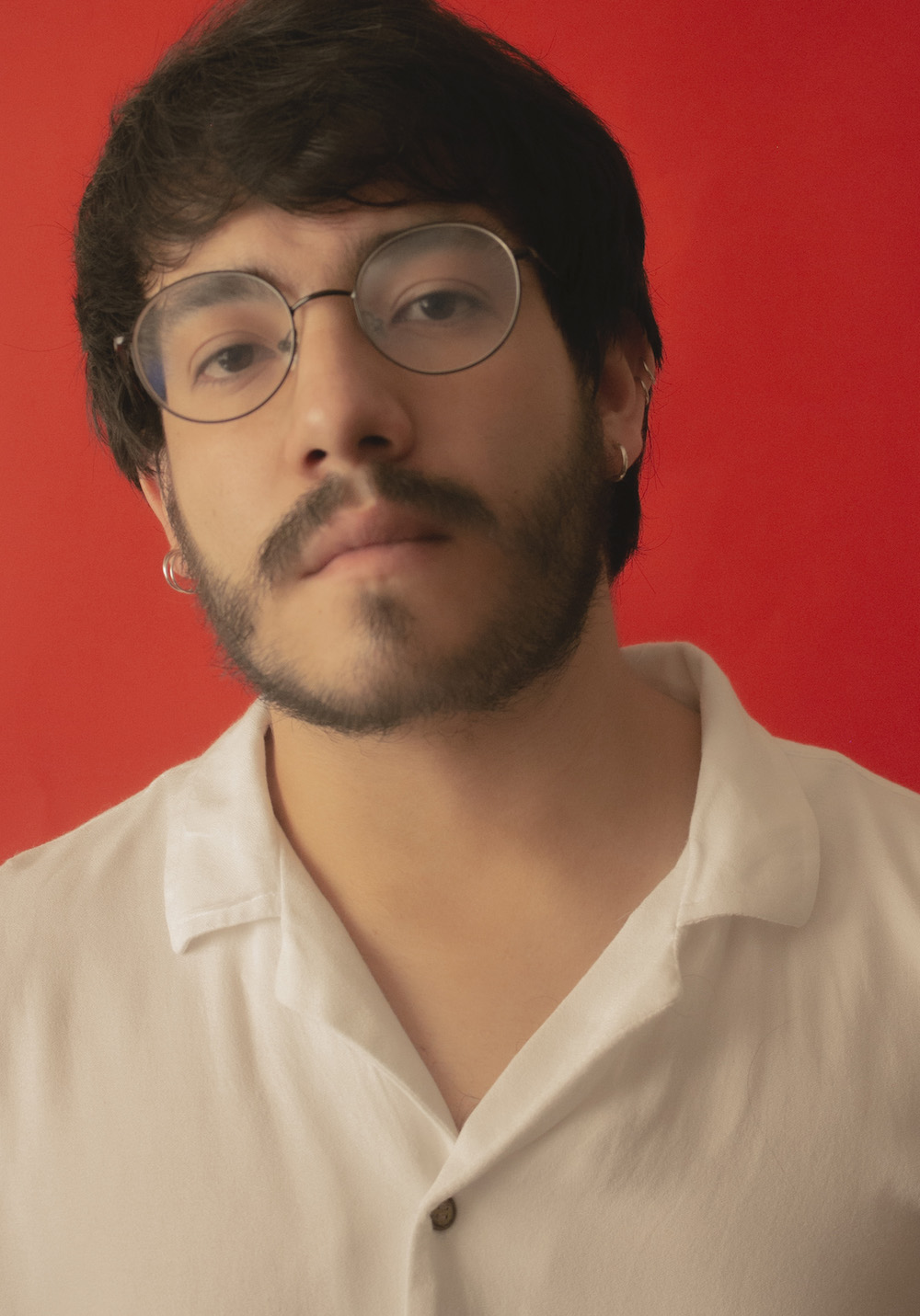
Miguel Ángel Fajardo is a Colombian filmmaker interested in the gestures of spirituality. He is the director and screenwriter of the short films Buscó a Satanás, encontró la familia (2022) and Voz de Bruja (2024). He has worked as a scriptwriter for Netflix Colombia and as a script doctor for Ibero-American scriptwriters. He is currently a PhD student in communication at the UPF.
"A desk is a dangerous place from which to watch the world" (John Le Carré)